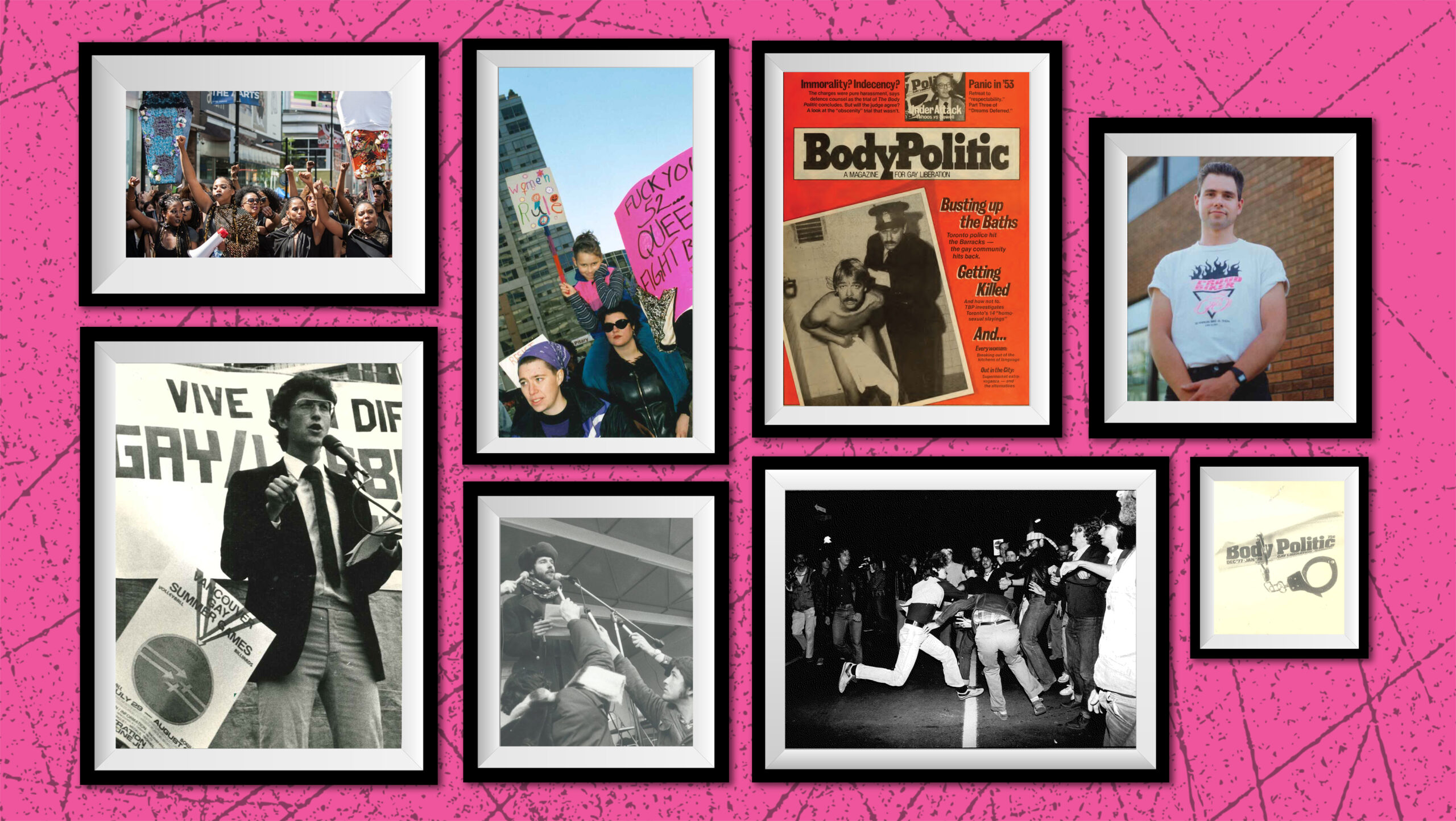This story is part of “Still Fighting”, a series exploring the past 50 years of LGBTQ2 activism in Canada.
In Canada, the past 50 years have been marked with milestones, losses and gains — moments etched into our collective histories. I wasn’t around for many of them. Now 25, I wasn’t alive to see the pain and anguish of the AIDS crisis as it ravaged our communities. I wasn’t there when police raided bathhouses and bars across the country, beating patrons and threatening to out them, to ruin their careers and relationships and lives. I was only 10 when debates on same-sex marriage began on Parliament Hill, though I can recall watching TV news with my parents as protesters droned on about “Adam and Eve, not Adam and Steve.”
Since 1969, when Criminal Code amendments reformed our definitions of gay sex in Canada and the Stonewall riots shook New York City, we’ve seen massive changes to the ways we live and love. Legally, we’ve fought to earn rights that protect us from discrimination and provide us with equality to our cisgender and straight counterparts. Socially, we’ve become more accepted, and our existence has enriched the communities who’ve welcomed us. More of our community members represent us at the political level. There’s plenty to celebrate.
But we still have a long way to go. Those 1969 changes to the Criminal Code reformed laws around consensual sex in private between two adults (including same-sex couples) over the age of 21 — which means that prior to that time, police could arrest citizens for having sex in their own homes. Despite the common refrain that this spelled the decriminalization of homosexuality, LGBTQ2 Canadians continued to have their lives policed: our newspapers and bookstores raided, our bathhouses and bars attacked. Even today we remain criminalized: Gay men still can’t donate blood under certain circumstances, and they are banned outright from donating sperm. Those living with HIV can be charged and imprisoned if they’re accused of not having disclosed their poz status to partners. Even at a grassroots level, activists are policed and shut down — the efforts of Black Lives Matter TO at Pride are a prime example.
In remembering the battles we’ve won and lost — and anticipating the ones that still lie ahead — we recognize the efforts of those who came before us, and we pave the way for those who will come next.
That’s why, for the rest of the year, Xtra will publish Still Fighting, a series that explores the past, present and future of LGBTQ2 rights, issues and communities. Each month’s theme will provide a look back into our publication’s archives (in some cases, as far back as our predecessor, The Body Politic), insight into hard-won (and hard-lost) fights and feature conversations among generations of LGBTQ2 Canadians.
Over the next six months, you’ll read about policing and censorship in our communities, the ways our domestic lives have changed over the years, what LGBTQ2 representation in party politics should look like and more.
My hope is that this series will help build more bridges between our generations. As a millennial who has benefited greatly from the past work of LGBTQ2 activists, I feel privileged to learn about how we reached this point in history. And for community members who made those historical moments happen, I hope our next half-year of content will teach you about the next wave of activists leading the way.
Here’s to the past 50 years — and to many, many more ahead of us.
This story is part of “Still Fighting”, a series exploring the past 50 years of LGBTQ2 activism in Canada.



 Why you can trust Xtra
Why you can trust Xtra


